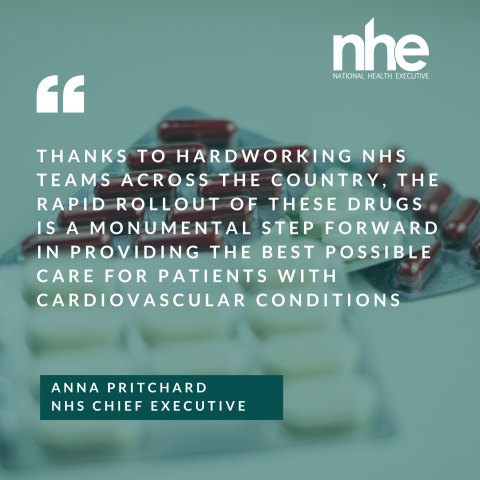Thousands of lives have been saved and almost 17,000 strokes prevented, thanks to the rapid rollout of blood-thinning drugs on the NHS, the head of the health service is due to announce today.
The news comes as the NHS celebrates the one-year anniversary of its Long Term Plan, which set out a bold vision for the future of the health service. The plan includes a commitment to invest in early detection and treatment of cardiovascular conditions, and the rollout of blood-thinning drugs is a key part of this.
Blood-thinning drugs, also known as anticoagulants, work by preventing blood clots from forming. This is important for people with atrial fibrillation (AF), a condition that can cause an irregular and often abnormally fast heart rate. AF is the most common cause of stroke, and people with AF are five times more likely to have a stroke than those without the condition.

The NHS has invested heavily in the rollout of blood-thinning drugs in recent years. In 2021, the NHS reached a commercial agreement with four pharmaceutical companies to ensure that four potentially life-saving DOACs could reach hundreds of thousands more patients at pace.
As a result of this investment, the number of people taking blood-thinning drugs has increased significantly. In the last 18 months, around 460,000 more people have started taking anticoagulant drugs, with more than 24 million prescriptions given to patients.
This has had a dramatic impact on the number of strokes prevented. According to the NHS, the rollout of blood-thinning drugs has prevented an estimated 17,000 strokes and 4,000 deaths in the last two years.
Speaking at Kings Fund Annual Conference later today, NHS chief executive, Amanda Pritchard will say: "It's outstanding news that these drugs have potentially helped save thousands of lives already and prevented many more people from suffering the serious and often debilitating effects of strokes.
"Thanks to hardworking NHS teams across the country, the rapid rollout of these drugs is a monumental step forward in providing the best possible care for patients with cardiovascular conditions.
"It is also part of a major NHS drive to prevent ill health in the first place - we want to reduce the number of people living with major illness and save thousands more lives."
The Stroke Association's associate director for policy and research, Dr Maeva May, said: "It's fantastic news that oral anticoagulants have helped to prevent so many strokes over the last two years. AF accounts for one in five strokes and strokes in people with AF are more severe and are more likely to result in death or serious disability.
"The good news is that if AF is identified it can be managed. The majority of AF related strokes are preventable with the right medication. Managing AF correctly improves people's quality of life and is cost effective for the system. Both AF and other stroke prevention measures must continue to be prioritised regionally and nationally."
Photo Credit: iStock


















